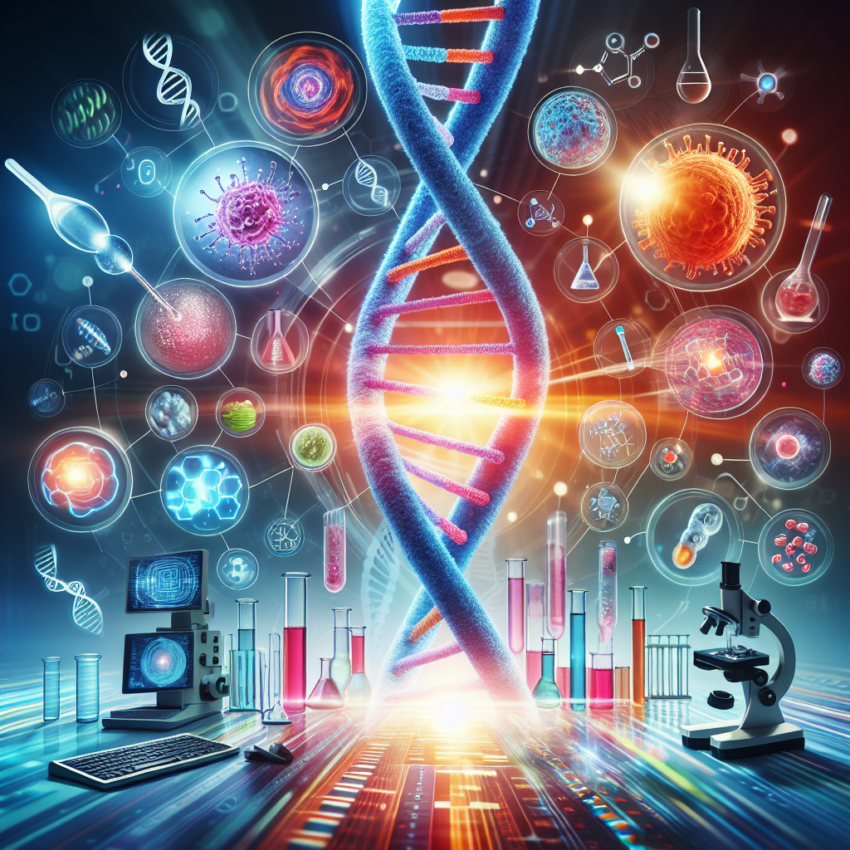Introduction
Biotechnology has emerged as a transformative force in modern science, driving advancements across multiple sectors including healthcare, agriculture, and environmental conservation. As we delve deeper into the 21st century, the pace of innovation in biotechnology continues to accelerate, promising revolutionary solutions to some of the world’s most pressing challenges.
Biotechnological Innovations in Healthcare
1. Gene Therapy
Gene therapy has turned from a futuristic concept into a clinical reality. By directly modifying the genes inside a patient’s cells, this cutting-edge technique aims to treat or even cure genetic disorders. Diseases such as cystic fibrosis, hemophilia, and certain types of cancer are now at the forefront of gene therapy research.
2. CRISPR-Cas9 Technology
The CRISPR-Cas9 system has garnered widespread attention for its ability to edit the genome with remarkable precision. This technology offers vast potential for creating targeted treatments and may even pave the way for preventing hereditary diseases before they manifest.
3. Personalized Medicine
Advancements in biotechnology have enabled the development of personalized medicine, wherein treatments are tailored to individual genetic profiles. This approach is enhancing the efficacy of therapies for a variety of conditions including cancer, heart disease, and neurological disorders.
Innovations in Agricultural Biotechnology
1. Genetically Modified Organisms (GMOs)
GMOs have spearheaded agricultural innovation, allowing for crops that are more resistant to pests, diseases, and changing climate conditions. These genetically engineered plants can also have enhanced nutritional profiles, contributing significantly to global food security.
2. Biopesticides and Biofertilizers
Biotechnology has led to the development of biopesticides and biofertilizers that offer more sustainable and eco-friendly alternatives to chemical-based products. These innovations not only increase crop yields but also reduce the environmental impact of agriculture.
3. Precision Agriculture
Precision agriculture leverages biotechnology along with advanced data analytics to optimize farming practices. Farmers can now use sensors, drones, and satellite imagery to make informed decisions about when and how to plant, water, and harvest crops, maximizing efficiency and minimizing waste.
Environmental Biotechnology
1. Bioremediation
Bioremediation utilizes microorganisms to break down environmental pollutants, offering a powerful tool for cleaning up contaminated sites. These bio-processes are becoming a cornerstone in efforts to mitigate environmental damage caused by industrial activities.
2. Biofuels
Advancements in biotechnology have also focused on developing renewable energy sources. Biofuels derived from organic materials represent a more sustainable alternative to fossil fuels and are a step forward in reducing greenhouse gas emissions.
3. Waste Management
Biotechnology is playing a crucial role in modern waste management strategies. The use of microbial systems to decompose organic waste into useful byproducts is not only environmentally friendly but also economically viable.
Conclusion
The innovations in biotechnology are poised to reshape our world in numerous ways, offering groundbreaking solutions to challenges in healthcare, agriculture, and environmental sustainability. As these technologies continue to evolve, they hold the promise of a future that is not only more efficient and productive but also more equitable and sustainable.

